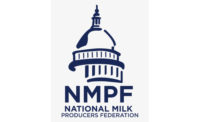The first area Kozak addressed was immigration reform, since “the issue of a stable and available workforce is of paramount importance to the dairy industry,” he said. “No other issue has the potential to cause catastrophic results with respect to the production and marketing of milk in this country than the failure of our leaders in
In his second point, Kozak stressed the need to reform and revitalize the Federal Milk Marketing Order program. He proposed “replacing the make allowance structure with a competitive pay price that would allow processing plants to pay what they must for the milk they procure.” NMPF’s Federal Order task force had not yet come up with a way to do this, but Kozak was convinced “that it is the right thing to do.”
Kozak’s third point was that the industry should consider alternatives to the Dairy Product Price Support and Milk Income Loss Contract programs. Instead of “fighting a rear-guard battle with these initiatives,” Kozak suggested that NMPF “should ask Congress to end both programs, and replace them with programs that will benefit the entire industry in a new global marketplace.”
Kozak did not advocate having no government regulation of dairy whatsoever, but said that “the PSP and the MILC baseline funding should be replaced with tax incentives and other initiatives that will reward the use of new technologies and innovation.” Kozak also said that “we should consider a feed-adjuster type mechanism, as part of a government-run margin protection program, similar to crop insurance, to help mitigate risk, and protect operating margins.”
Kozak’s fourth point was that the industry should take a more comprehensive approach to animal care and well-being and environmental initiatives. “Many people are concerned more and more about the environment, their own health, and the quality of the food they consume,” he said, with part of that concern stemming from a heightened interest in animal care.
To further NMPF’s resources in that area, Kozak said NMPF is assimilating the programs of the
For his final point, Kozak addressed the need to maintain, adapt, and expand Cooperatives Working Together, the farmer-funded self-help program in it sixth year of operation. “Precisely because the government won’t have the resources or the inclination to help farmers as much in the future, now more than ever, we need to have a self-help program, without government involvement,” he said. Kozak said CWT’s export program should be expanded through creation of a U.S. Marketing Agency in Common (USMAC) to use the potential of NMPF’s cooperative structure.
CWT also should create financial incentives to produce products from American milk that are not being manufactured today. To address the “free-rider problem” and expand membership, Kozak said “we have to find new creative ways to reward CWT’s members, above and beyond those who don’t contribute to the program.”
Kozak also acknowledged the service of Charles Beckendorf, who is retiring as NMPF’s chairman. Beckendorf, a dairy farmer from
For a full copy of Kozak’s speech, visit www.nmpf.org.
The National Milk Producers Federation (NMPF), based in


